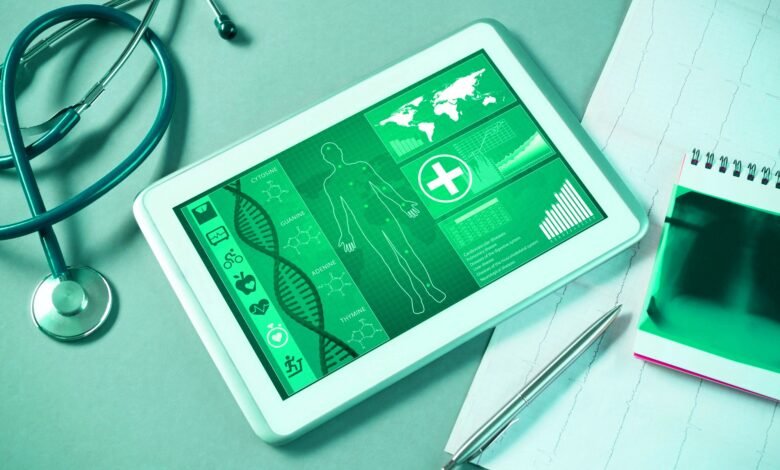The Role of Technology in German Healthcare Advancements

In the ever-evolving landscape of German healthcare, the role of technology stands as a cornerstone of innovation and progress. From the digitization of medical records to the integration of cutting-edge diagnostic tools, technology in German healthcare is driving significant advancements that are revolutionizing patient care and treatment outcomes. This article explores the pivotal role of technology in German healthcare advancements, examining how innovative solutions and digitalization initiatives are shaping the delivery of healthcare services, improving efficiency, and enhancing the overall quality of patient care across the country.
Historical Perspective
Germany has a rich history of technological innovation in healthcare. From the invention of the X-ray by Wilhelm Conrad Roentgen to the development of advanced medical imaging techniques, the country has consistently pushed the boundaries of medical technology. Milestones such as the introduction of electronic health records and the implementation of digital imaging systems have revolutionized healthcare delivery in Germany.
Current Technological Landscape
In recent years, Germany has embraced digitalization in healthcare with initiatives aimed at streamlining processes and improving patient outcomes. The adoption of electronic health records has enabled seamless sharing of patient information among healthcare providers, leading to better coordination of care. Telemedicine and remote patient monitoring have emerged as viable solutions, especially in rural areas where access to healthcare services is limited. Artificial intelligence (AI) and machine learning are being increasingly used in diagnostics, enabling faster and more accurate detection of diseases.
Impact of Technology on Patient Care
The integration of technology has significantly improved patient care in Germany. Diagnosis and treatment planning have become more precise and efficient, leading to better outcomes for patients. Additionally, patients now have greater access to healthcare services through telemedicine, reducing the need for physical visits to healthcare facilities. Technology has also enhanced patient engagement, allowing individuals to take a more active role in managing their health.
Challenges and Concerns
Despite the benefits, the adoption of technology in healthcare is not without challenges. Data privacy and security remain major concerns, especially with the digitization of healthcare records. Ensuring interoperability and integration of new technologies into existing systems pose technical challenges. Moreover, bridging the digital divide and ensuring equitable access to technology for all segments of the population are pressing issues that need to be addressed.
Government Initiatives and Policies
The German government has taken proactive measures to support technological advancements in healthcare. Policies promoting research and development, along with investments in healthcare infrastructure, have created a conducive environment for innovation. Regulations aimed at ensuring patient safety and data privacy are in place to guide the implementation of new technologies.
Read More: Trends in German Healthcare: Innovations and Progress
Future Trends and Innovations
Looking ahead, the future of healthcare in Germany is poised for further technological innovations. Wearable technology and health tracking devices are expected to play a significant role in preventive care and remote monitoring of patients. Personalized medicine, driven by advancements in genomics and molecular diagnostics, holds promise for more targeted and effective treatments. Robotics and automation are also poised to revolutionize surgical procedures, offering greater precision and efficiency.
Case Studies
Several case studies demonstrate the successful implementation of technology in German healthcare. For instance, the use of telemedicine has enabled timely interventions in remote areas, improving access to specialized care. AI-powered diagnostic tools have enhanced the accuracy of disease detection, leading to early interventions and improved outcomes for patients.
International Collaboration and Exchange
Germany actively collaborates with international partners to drive innovation in healthcare technology. Partnerships with global tech companies and research institutions facilitate knowledge sharing and the exchange of best practices. By leveraging expertise from around the world, Germany continues to stay at the forefront of healthcare innovation.
Public Perception and Acceptance
Public perception of technology in healthcare plays a crucial role in its adoption. In Germany, there is generally positive sentiment towards technological advancements, with people recognizing the potential benefits for improving healthcare delivery. However, education and awareness initiatives are essential to address any skepticism and ensure widespread acceptance of new technologies.
Economic Implications
The adoption of technology in healthcare has significant economic implications. While initial investments may be substantial, the long-term benefits in terms of improved efficiency and better patient outcomes outweigh the costs. Digitalization of healthcare processes also leads to cost savings through reduced administrative overheads and more effective resource allocation.
Ethical Considerations
Ethical considerations are paramount in the use of technology in healthcare. In Germany, strict regulations govern the use of patient data for research and development purposes, ensuring privacy and confidentiality. There is also a focus on ensuring equity in access to technology, particularly for marginalized communities, to prevent exacerbating existing healthcare disparities.
Role of Healthcare Professionals
Healthcare professionals play a crucial role in driving the adoption of technology in clinical practice. Training and upskilling programs are essential to equip healthcare workers with the necessary digital literacy and technical skills. Integrating technology seamlessly into clinical workflows enhances efficiency and improves the overall quality of care.
Read More: Mental Health Support in Germany: Resources and Strategies
Conclusion
In conclusion, technology has become an integral part of advancing healthcare in Germany. From the digitalization of healthcare records to the use of AI in diagnostics, technological innovations are driving improvements in patient care, efficiency, and innovation. While challenges remain, the future looks promising with continued investments, research, and international collaboration.
FAQs(The Role of Technology in German Healthcare Advancements)
What technology is used in German healthcare?
German healthcare utilizes various technologies like electronic health records, telemedicine, and AI for diagnostics.
How does technology enhance patient care in Germany?
Technology improves patient care by enabling precise diagnosis, remote monitoring, and better access to healthcare services.
What challenges does Germany encounter in adopting new healthcare tech?
Challenges include data privacy concerns, integrating new tech into existing systems, and ensuring equitable access across the population.
Are there privacy concerns with healthcare records digitalization in Germany?
Yes, privacy concerns exist, and Germany has regulations to address them, ensuring patient data confidentiality and security.
How does international collaboration benefit healthcare technology in Germany?
International collaboration fosters knowledge sharing, innovation, and the exchange of best practices, driving advancements in healthcare technology.











